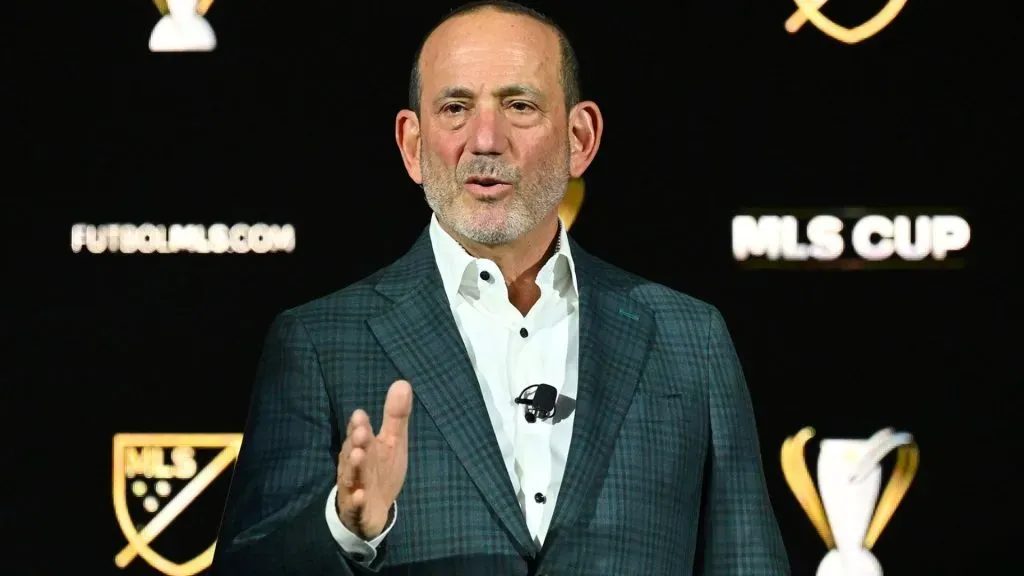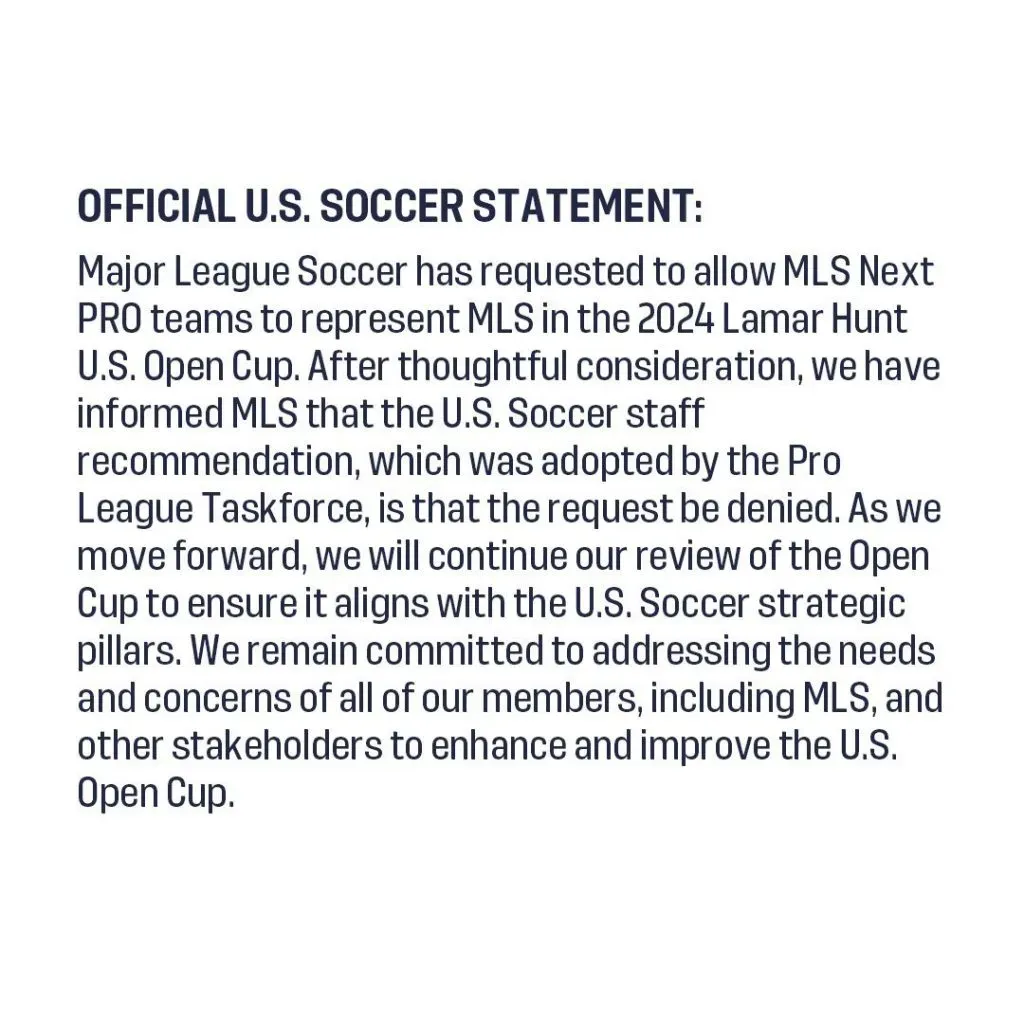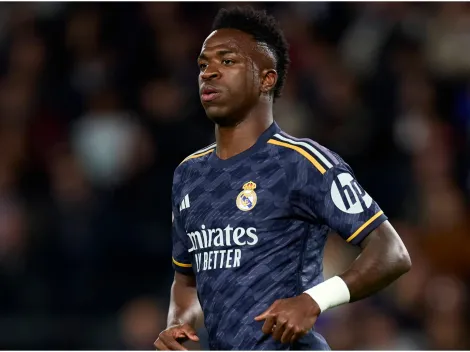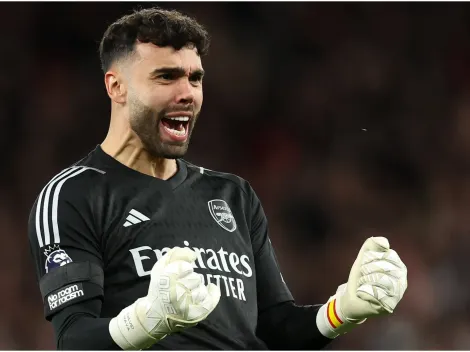U.S. Soccer finally put their foot down, as they issued a press release informing the US Soccer world and Major League Soccer that MLS’ intention to send MLS Next Pro sides to the US Open Cup be denied.
The statement was clear but left a big question mark, what happens now? US Soccer’s statement read; “Major League Soccer has requested to allow MLS Next Pro teams to represent MLS in the Lamar Hunt US Open Cup.
After thoughtful consideration, we have informed MLS that the US Soccer Staff recommendation, which was adopted by the Pro League Taskforce, is that the request be denied. As we move forward, we will continue our review of the Open Cup to ensure that it aligns with US Soccer strategic pillars. We remain committed to addressing the needs and concerns of all our members, including MLS, and other stakeholders to enhance and improve the US Open Cup.”
What now?
With US Soccer officially telling MLS to shove it, the question now lies in what happens next? Under US Soccer’s guidelines MLS cannot simply walk away from the tournament, if they do, without the consent of US Soccer, the league could lose its division 1 ranking, meaning MLS would not be considered the top league in the US Soccer pyramid.
MLS has no desire to play the US Open Cup, and heavy questions have been tabled as to just how important MLS views any other competition (Concacaf Champions Cup, Club World Cup, Copa Libertadores) that is not under their umbrella like Leagues Cup or their Apple TV deal.
Recently in an interview with Bolavip, former US Soccer presidential candidate Eric Wynalda stated that Don Garber, MLS Commissioner, most likely did not like the fact that Lionel Messi, MLS’ prize asset, was playing a semifinal or cup final away from the league’s prize Apple TV deal.
“When somebody came in from the outside (TyC Sports) and said, “I want to buy the rights (to the US Open Cup), I want to put this on television, I want to tell Messi’s story in the United States”, that must have scared the hell out of Don Garber. That’s the last thing in the world that he needs.”
The reality is, it would make no sense for US Soccer to not have a chance to sell rights to the US Open Cup abroad like they did in the case of TyC Sports and generate huge revenue for a tournament largely ignored nationally, let alone internationally.
Having a chance at seeing Messi lift the title would be a huge asset for the image of the tournament and US Soccer, who has struggled greatly to sell the US Open Cup to a larger audience than diehard niche soccer fans.
The ball is now in the court of MLS, who have stated before that the US Open Cup is not a priority moving forward. The breaking of the marketing deal between SUM and US Soccer seems to be the driving force behind the disconnect between the nation’s top league and federation.
One thing is for certain, amid the most important next 3 years in the history of soccer in the United States, MLS and US Soccer are at a crossroads of interests, relevancy, money, and ego.
UPDATE MLS FULL STATEMENT AFTER US SOCCER DENIES REQUEST
Major League Soccer recently proposed to U.S. Soccer a plan for MLS NEXT Pro teams to represent the League in the 2024 Lamar Hunt U.S. Open Cup. MLS took that step because it believes that there are several essential goals and concerns that must be addressed in connection with the tournament, including developing young professional players and providing them with greater opportunity to play before fans in meaningful competition in a tournament setting, prioritizing player health and safety, reducing schedule congestion for MLS clubs, and enhanced investment from U.S. Soccer.
U.S. Soccer has subsequently notified MLS that the Federation is not prepared to grant the necessary waiver for MLS NEXT Pro clubs owned by MLS owners to participate in the Open Cup. Independently owned MLS NEXT Pro clubs such as Chattanooga FC and Carolina Core remain eligible for the 2024 Open Cup.
MLS is committed to finding a viable solution for the 2024 tournament and is working to find a pathway that addresses its goals and concerns. Moving forward, MLS will remain focused on increasing opportunities for up-and-coming players, a key component of the League’s player development strategy that ultimately benefits the U.S. national team program.









